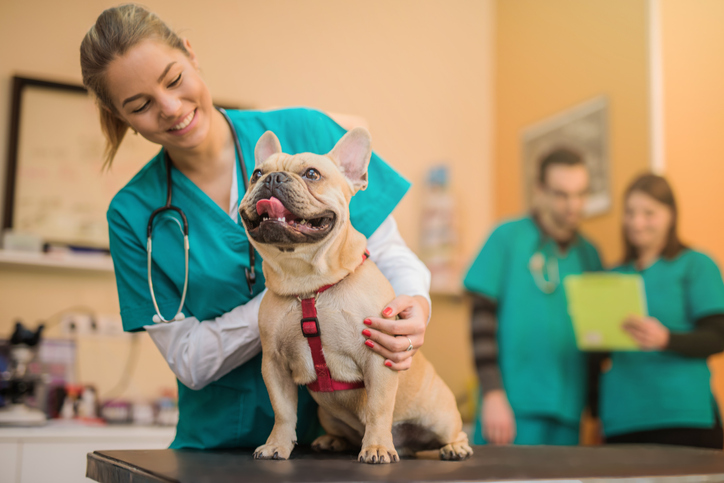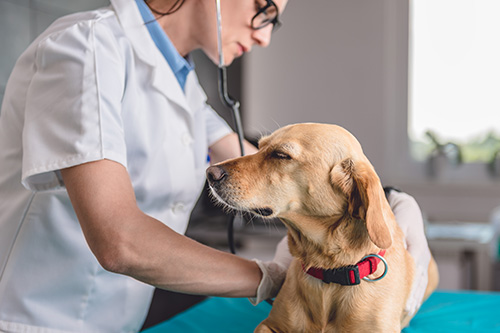Your pet's health is precious. Just like humans, our pets need regular check-ups to ensure they are in tip-top condition. And, just like us, they are susceptible to a whole host of health problems, some of which can be very serious.
In today's article, in honor of National Pet Cancer Awareness month, let's take a closer look at your pet's health. Here's what you need to know:
That's why it's essential to keep an eye on your pet's health and take them to the vet for regular check-ups. Here are some signs to look out for which could indicate your pet is unwell:
- Loss of appetite
- Change in behavior
- Weight loss
- Excessive drinking or urination
- Lethargy
- Difficulty breathing
- Coughing
- Vomiting
- Diarrhea
- Abnormal lumps or swellings
- Changes in coat or skin
- Bad breath
If you notice any of these signs, it's time to take your pet to the vet. They will be able to give your pet a thorough check-up and run any necessary tests to determine what is wrong.
Don't wait until your pet is seriously ill before you seek medical help. The sooner you act, the better their chances of making a full recovery.
Your pet is an important member of your family, so make sure you take care of their health. It could save their life.
Why National Pet Cancer Awareness Month is Important
Cancer is the leading cause of death in dogs and cats in the United States, with nearly half of all pets diagnosed with the disease eventually succumbing to it.
The American Veterinary Medical Association (AVMA) has designated May as National Pet Cancer Awareness Month to increase awareness of pet cancer and encourage early detection and treatment.

While the causes of pet cancer are largely unknown, some risk factors have been identified, including age, breed, gender, and lifestyle. For example, older dogs and cats are more likely to develop cancer than younger ones, and certain breeds (such as Golden Retrievers, Boxers, and Boston Terriers) have a higher incidence of the disease.
There are many types of pet cancer, each with its symptoms. Some common signs of cancer in pets include:
- Lump or mass on the body
- Sudden weight loss
- Loss of appetite
- Excessive drinking and urination
- Persistent cough or vomiting
- Lethargy or weakness
If you notice any of these signs in your pet, you must contact your veterinarian immediately for an examination. Early detection is key to the successful treatment of pet cancer, and the sooner the disease is caught, the better the chances are for a positive outcome.
Many different treatment options are available for pet cancer, including surgery, chemotherapy, radiation therapy, and immunotherapy. The type of treatment recommended will depend on the type and stage of cancer, as well as the pet's overall health.
Pet cancer is a devastating disease, but with early detection and proper treatment, many pets can go on to enjoy long, happy, and healthy lives. If you have any concerns about your pet's health, contact your veterinarian immediately.
Pet Cancer is More Common Than People Think
As a pet owner, it's essential to be aware of the risks of cancer in animals. While cancer is more common in older pets, it can affect any animal at any age.
Many types of cancer can affect pets, but the most common are lymphoma, skin cancer, and mammary cancer.
- Lymphoma is a cancer of the lymphocytes, a type of white blood cell. It's the most common type of cancer in cats and can also affect dogs, ferrets, and rabbits.
- Skin cancer is the most common type of cancer in dogs and can also affect cats, horses, and other animals with fur or feathers. The most common type of skin cancer in dogs is melanoma, a cancer of pigment-producing cells.
- Mammary cancer is the most common cancer in female dogs and cats. It can also affect other animals with mammary glands, such as rabbits and ferrets.
There are many different risk factors for cancer in pets, including genetics, environment, and lifestyle. Some breeds of dogs and cats are more prone to certain types of cancer than others. For example, Golden Retrievers and Boxers are at increased risk for lymphoma, while Siamese cats are at increased risk for mammary cancer.

Certain environmental factors can also increase the risk of cancer in pets. Exposure to secondhand smoke, ultraviolet light, and certain chemicals can increase cancer risk.
Certain lifestyle factors can also increase the risk of cancer in pets. Obesity is a major risk factor for cancer in both dogs and cats. Pets who don't get enough exercise are also at increased risk.
If you're concerned about your pet's cancer risk, talk to your veterinarian. They can help you assess the risks and make recommendations for keeping your pet healthy.
How to Keep Your Pet Healthy
1. Feed Your Pet A Nutritious Diet.
A nutritious diet is essential for your pet's overall health and can help reduce its risk of developing cancer. Look for pet foods high in antioxidants, which can help protect cells from damage. Also, make sure your pet is getting enough protein and essential fatty acids, which are important for a healthy immune system.
2. Keep Your Pet At A Healthy Weight.
Obesity is a major risk factor for cancer in dogs and cats. Keeping your pet at a healthy weight can help reduce its risk of developing the disease.
3. Get Your Pet Vaccinated.
Vaccinations can help protect your pet from certain types of cancer, such as lymphoma. Be sure to talk to your veterinarian about which vaccinations are appropriate for your pet.
4. Avoid Exposure To Toxins.
Exposure to certain toxins, such as pesticides and herbicides, can increase your pet's risk of developing cancer. Try to limit your pet's exposure to these substances by keeping them away from treated areas and using natural products instead.
5. Exercise Your Pet Regularly.
Regular exercise is important for your pet's overall health and can help reduce its risk of developing cancer. Take your pet for walks or runs regularly, and ensure it has plenty of time to play.
The Bottom Line
National Pet Cancer Awareness Month is a great time to learn more about this disease and how to prevent it. By taking some simple steps, like getting your pet checked regularly by a veterinarian and keeping them up to date on their vaccinations, you can help keep your pet healthy and cancer-free.
If you’re still figuring your way around paw care, we’d like to help you. EarthWise Pet Fremont is a grooming wellness spa and local pet store in Washington. We offer various pet products, pet grooming, and pet nutrition. Our goal is to keep them as comfortable as possible, so let us know if there’s anything extra we can do to help!

